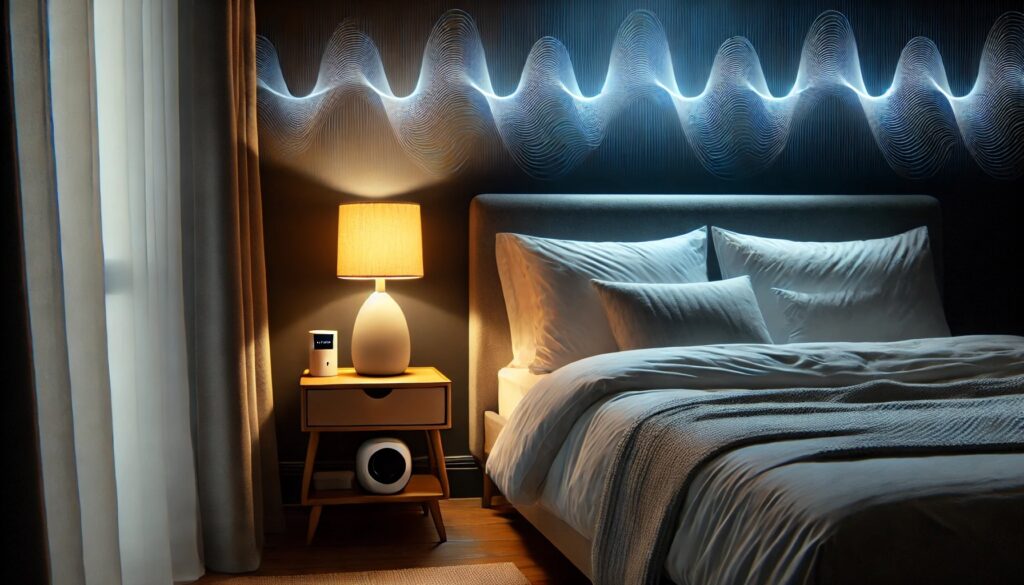
Why Deep Sleep is the Foundation of Restorative Health
Deep sleep is more than just a stage in your sleep cycle—it’s the cornerstone of your health and well-being. During this critical phase, your body and mind undergo essential repairs that restore energy, support immune function, and improve cognitive performance. Yet, in today’s fast-paced world, achieving deep sleep is becoming increasingly elusive.
In this blog, we’ll dive into the science of deep sleep, why it’s essential for restorative health, and how you can enhance this vital stage of rest. Along the way, we’ll introduce practical strategies and highlight products from DeepSleepDepot.com designed to help you achieve the deep, restorative sleep your body craves.
What is Deep Sleep?
Deep sleep, also known as slow-wave sleep (SWS), is one of the four stages of the sleep cycle. Characterized by slow brainwaves and minimal activity, this phase is when the body achieves its most restorative functions.
Key Features of Deep Sleep:
• Slow Brainwaves: Brain activity slows to delta waves, which are associated with deep relaxation.
• Reduced Heart Rate and Breathing: The body enters a state of physical recovery.
• Hormone Release: Growth hormone is released, supporting cell repair and muscle recovery.
Deep sleep typically occurs in the first half of the night, lasting about 20-40 minutes per cycle. Adults spend about 13-23% of their total sleep in this stage, but this percentage decreases with age.
Why Deep Sleep is Crucial for Restorative Health
1. Physical Repair and Growth
During deep sleep, your body focuses on repairing tissues, strengthening the immune system, and releasing growth hormones. This process is vital for healing injuries, recovering from exercise, and maintaining overall physical health.
2. Cognitive Function and Memory
Deep sleep plays a crucial role in consolidating memories and clearing the brain of waste products like beta-amyloid, a protein linked to Alzheimer’s disease. Without enough deep sleep, cognitive performance, focus, and problem-solving abilities can suffer.
3. Emotional Resilience
Restorative sleep helps regulate mood and manage stress. Studies show that insufficient deep sleep can lead to irritability, anxiety, and depression.
4. Hormonal Balance
Deep sleep regulates hormones that control hunger (ghrelin) and fullness (leptin), supporting healthy weight management and reducing cravings.
Signs You’re Not Getting Enough Deep Sleep
• Waking up feeling tired or groggy.
• Struggling with memory, focus, or decision-making.
• Increased susceptibility to illness.
• Persistent muscle soreness or delayed recovery from exercise.
• Mood swings or heightened anxiety.
If these signs sound familiar, it’s time to prioritize your sleep quality.
How to Enhance Your Deep Sleep
1. Stick to a Consistent Sleep Schedule
Going to bed and waking up at the same time every day helps regulate your circadian rhythm, ensuring you spend adequate time in each sleep stage.
2. Create the Perfect Sleep Environment
Your bedroom should be a sanctuary for rest. Keep it dark, cool, and quiet.
Recommended Product:
• Blackout Curtains: Block out external light to ensure uninterrupted sleep.
3. Invest in Quality Sleep Tech
Sleep trackers can provide insights into your sleep patterns, helping you identify issues and track improvements.
Recommended Product:
• Sleep Trackers: Monitor your deep sleep cycles and adjust your habits accordingly.
4. Optimize Your Diet
Avoid caffeine and heavy meals in the evening. Instead, opt for foods rich in magnesium and tryptophan, which promote relaxation and sleep.
Recommended Product:
• Magnesium Glycinate Gummies: Support relaxation and sleep quality naturally.
5. Use Weighted Blankets
Weighted blankets promote relaxation by stimulating the release of serotonin and reducing cortisol levels.
Recommended Product:
• Weighted Blankets: Create a calming sleep environment that enhances deep rest.
6. Incorporate Relaxation Techniques
Wind down with calming activities like meditation, yoga, or listening to white noise.
Recommended Product:
• White Noise Machines: Mask disruptive noises and create a peaceful ambiance for sleep.
7. Prioritize Exercise
Regular physical activity improves sleep quality, but avoid vigorous workouts close to bedtime.
8. Limit Screen Time
Blue light from screens suppresses melatonin production, disrupting your body’s natural sleep cycle.
Recommended Product:
• Blue Light Glasses: Protect your eyes and maintain your melatonin levels during evening screen use.
The Role of Sleep Tech in Deep Sleep Optimization
Advances in sleep technology have made it easier than ever to enhance deep sleep. From smart mattresses that adjust to your body temperature to portable sleep trackers, investing in the right tools can make a significant difference.
Explore Our Sleep Tech Collection:
At DeepSleepDepot.com, we offer a range of innovative products designed to support your journey to better sleep.
The Long-Term Benefits of Prioritizing Deep Sleep
When you consistently achieve deep sleep, the benefits extend far beyond the bedroom:
• Increased Energy: Wake up feeling refreshed and ready to tackle the day.
• Enhanced Productivity: Better focus and decision-making capabilities.
• Improved Physical Health: Faster recovery, a stronger immune system, and reduced risk of chronic diseases.
• Balanced Emotions: Greater resilience to stress and improved mood.
Conclusion
Deep sleep is the foundation of restorative health, impacting everything from your physical recovery to emotional well-being. By prioritizing this critical stage of rest and incorporating the tips and tools outlined above, you can unlock the life-changing benefits of quality sleep.
Ready to take your sleep to the next level? Explore our carefully curated collection of sleep-enhancing products and start your journey toward better rest today.
Your best, most well-rested life starts here.
